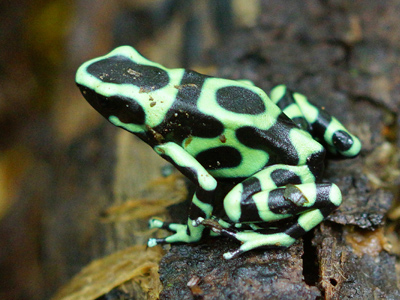
Biology - Adaptation (AQA)
In GCSE Science interdependence and adaptation is one of the subjects covered. This is the second of three quizzes on that topic and it looks at the adaptation of different organisms to their environment. It is a key part of biology and an understanding of it will help students to comprehend the theory of evolution.
Adaptation can mean many things but in biology it means a characteristic that makes an organism suited to its environment. This helps them to compete for the resources they need for survival. You have probably heard the expression "survival of the fittest". This sums up one of the basic facts of biology - the plants and animals that are better adapted can compete more effectively and will be the most successful.
Ready for more?
not all...
quizzers. Try to win a coveted spot on our Hall of Fame Page.







